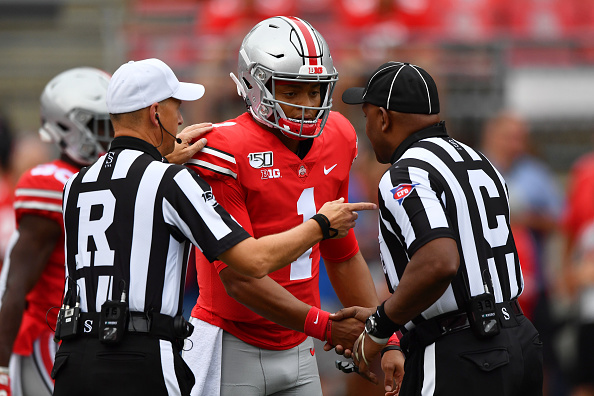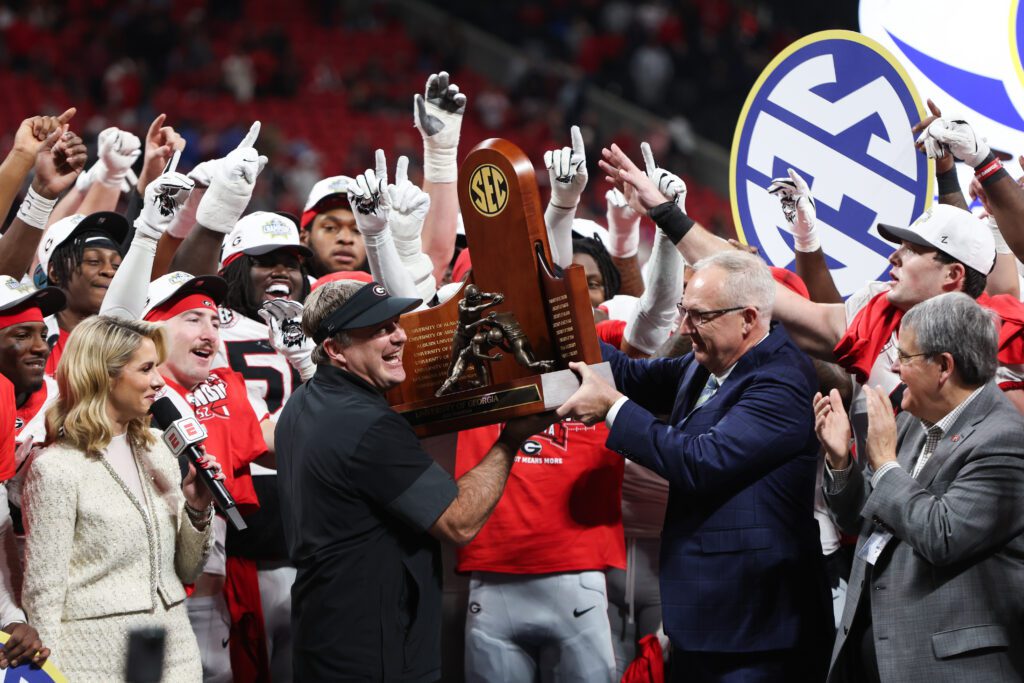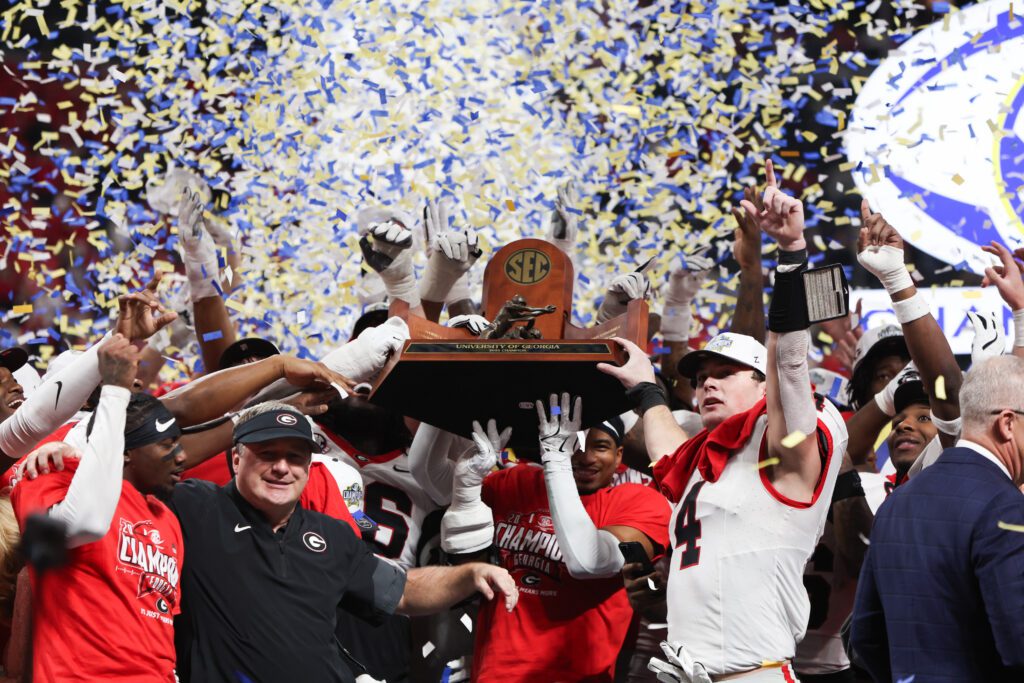California has passed the Fair Pay to Play Act, which prohibits colleges from taking scholarships from student-athletes who accept endorsements. This is a huge step in paying college athletes and has already inspired other states to take similar action. While many are for this, many are also against. One of the most notable names against this is former Florida Gators quarterback Tim Tebow. This debate is only beginning, and here is why it is necessary.
Why The NCAA Needs To Listen To California
Tebow’s Rebuttal Lacked Some Key Points
Tebow said on ESPN’s First Take that “it’s just who has the most money, who’s gonna pay them the most.” What he failed to mention and possibly realize is that in this bill the NCAA, the conferences, and the schools don’t pay the players for playing college sports. The student-athletes don’t make anything because of being college athletes. They would instead potentially make money from endorsements, sponsorships, sales of jerseys with their name on it, and business opportunities. There is a big difference between the schools paying the players and the players possibly making money from other ventures.
Not Everyone Is The Same
“When I was at the University of Florida, I think my jersey was one of the top jerseys around the world … and I didn’t make a dollar from it, but nor did I want to. Tebow said. Because I knew, going into college, what it was all about.”
Tebow failed to consider that not every athlete has the same background and mindset. There are athletes that come from low-income neighborhoods where their families struggle to provide necessities across nearly every sport. Tebow grew up in a family of missionaries that didn’t struggle financially. He may not have needed the extra money, but there are athletes coming from families who don’t know when their next meal is coming or if the rent will be paid in time. Tebow saying this is ignorant to the fact that not everyone has the privileges he has in his life.
Tebow’s Idea Doesn’t Solve The Problem
Tebow suggested in the ESPN interview to have a committee to provide stipends to make life easier. Based on the NCAA’s acts in recent years, this seems unlikely they have the compassion to help the student-athletes since it would cut into their money. This seems more like an excuse to not let them earn money from opportunities instead of wanting to help them. Instead of going through a process to possibly receive some benefits the athletes should be able to do it on their own and if needed receive assistance by the school and the NCAA.
The NCAA’s compassion has to be questioned since Virginia Tech’s Brock Hoffman was denied an appeal for eligibility after transferring to be closer to his sick mother. Since Virginia Tech is five miles outside of the 100-mile radius of his home and since his mother was doing better, he can’t transfer. However, Justin Fields who transferred to Ohio State after a year at Georgia where he didn’t play can automatically transfer without losing eligibility since he’s a quarterback who can make the NCAA more money than an offensive lineman.
What About Walk-Ons?
Tebow and many others also seem to forget about walk-ons. On a division one football roster, only 85 players can be on scholarship. 85 can get scholarships, but as many as 130 can be on the team. Many players don’t even get scholarships and have to pay for their tuition, books, housing, and fees themselves. Because of how expensive college is, they can accumulate thousands of dollars in debt they may never payback. Former Nebraska football player Brad Simpson estimated his student loan debt was between $85,000- $90,000. This is the case for many walk-ons who either have to leave their team or wait as long as four years to finally earn a scholarship. Imagine if these athletes could earn money from starting their own business or having a YouTube channel that could help decrease these lifelong debts.
Degrees Matter
For many of these student-athletes, they don’t have a choice but to take on student loans. According to the Federal Reserve in 2018, about 69 percent of students took on student loans averaging nearly $30,000. Many critics say you don’t need a college degree, but it definitely helps to have one. In 2017, the Bureau of Labor Statistics reported that those with a bachelor’s degree made about $500 more a week than those who graduated high school. Those with associate degrees made about $100 more than those with no college, even two years of community college makes a difference.
Common Sense
Former UCF kicker Donald De La Haye was forced to surrender his scholarship and spot on the team. His YouTube channel was monetized therefore making him money while being a student-athlete. As of now, he has almost two million subscribers. Most of his videos were football-related, however, had little to do with the fact he was a Division-I athlete.
It makes no sense why a player shouldn’t be able to take advantage of opportunities a non-student-athlete could. If they want to start a business, they should be able to.
It makes no sense why student-athletes shouldn’t at least be able to make money from areas outside of sports. The NCAA only cares about making money. They don’t care about the student-athletes. This bill is setting a precedent, and unless the NCAA changes drastically, it could be the first step in the end of the NCAA.
Image Credit:
Embed from Getty Images



